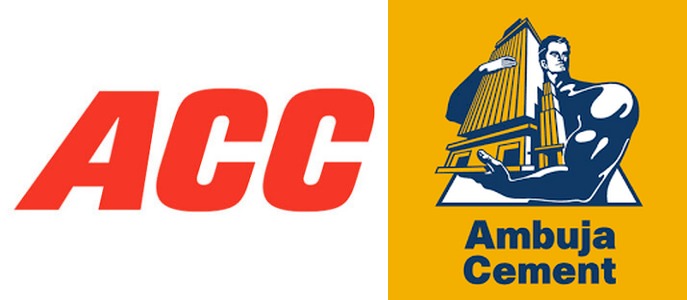Ambuja Cements Limited and ACC Limited are committed to make a concrete difference in the areas of carbon footprint reduction, circular economy, protection of natural resources and welfare of the communities. Aligned with ‘Net Zero’ target for 2050 with intermediate SBTs for 2030 of parent company Holcim, Ambuja Cement and ACC have undertaken an industry-first approach - leveraging sustainable construction through green products, to reduce CO2 emissions in India.
Through innovation and R&D, the companies have developed a range of green and responsible products for high-performing and circular construction. These products are giving an impetus to Ambuja Cement and ACC’s contribution towards SDG 9 and 11, our sustainable products will be contributing to the United Nations’ Sustainable Development Goals (UN SDGs).
Approximately 90% of Ambuja Cement’s product portfolio is low carbon fly ash-based PPC and composite cement. Innovative products such as PuraSand, AAC Cool Wall Blocks, Ambuja KAWACH, Ambuja Roof Plus, and Composite Plus, address the sustainability issues in construction. New sustainable product, Ambuja Kawach, is a specially formulated product with high-quality water repellent properties acting as a shield against water seepage in all construction applications (foundation, slab & walls) and ensures that structures can withstand the vagaries of harsh weather. It was certified by an international organisation Solar Impulse Foundation as an efficient solution.
Similarly, ACC’s low carbon concrete ECOPact has equipped the company to make a positive impact on its community of builders, and eco-conscious Individual Home Builder (IHB). The innovative manufacturing process of the ECOPact reduces CO2 emissions by up to 100%, enhancing the sustainable offerings for the construction industry.
“The United Nations Sustainable Development Goals (UNSDGs) provide an ambitious and urgent call-to-action and a practical framework for businesses to chart their sustainability journey. At Ambuja Cement and ACC, each sustainability initiative is linked to one or more of the UN SDGs because sustainability is a way of life and hence, we will continue to put in bolder action plans to foster an ecosystem for sustainable construction and circular economy,” said Neeraj Akhoury, CEO India Holcim and MD and CEO of Ambuja Cements Limited.
Additionally, in line with the UN SDGs, both companies have adopted initiatives that focus on four priority areas, namely Climate and Energy, Circular Economy, Environment, and People and Community.
Ambuja Cement is the only cement company to be certified eight times water positive in the industry. In 2020, Ambuja reduced its specific net CO2 per tonne of cementitious product to 531 kg. To contribute to a circular economy, Ambuja co-processed around 2.75 lakhs tons of waste in its kilns and captive power plants including more than 83,000 tons of plastic waste. Overall, it also consumed about 8 million tonnes of waste derived alternative raw materials such as fly ash, slag, and synthetic gypsum in the manufacturing process.
Similarly, ACC is the first Indian Cement Company to sign the Net Zero Pledge with Science Based Targets. ACC has its 2030 carbon emission reduction targets endorsed by the Science Based Targets initiative (SBTi). The company has signed the “Business Ambition for 1.5°C” pledge and joined the Race to Zero campaign of the United Nations Framework Convention on Climate Change. This makes ACC the first company in the Indian construction sector to sign the “Business Ambition for 1.5°C” commitment with 2030 intermediate targets approved by SBTi.
ACC partnered with CDP India's SBTi Incubator Program to develop its science-based targets. ACC’s SBTi approved targets align with the reductions required to limit warming to well below 2°C. ACC Limited commits to reduce scope 1 GHG emissions 21.3% per ton of cementitious material by 2030 from a 2018 base year*. ACC Limited also commits to reduce scope 2 GHG emissions 48.4% per ton of cementitious material within the same timeframe.
Both companies have also accelerated their de-carbonisation agenda, which aims to generate clean and green energy. The agenda will be delivered through a number of measures, from waste heat recovery system (WHRS) to using more renewable energy and reducing the amount of clinker used in cement manufacturing. These initiatives further strengthen ACC and Ambuja Cement’s solid foundation in sustainability to drive positive change.


















